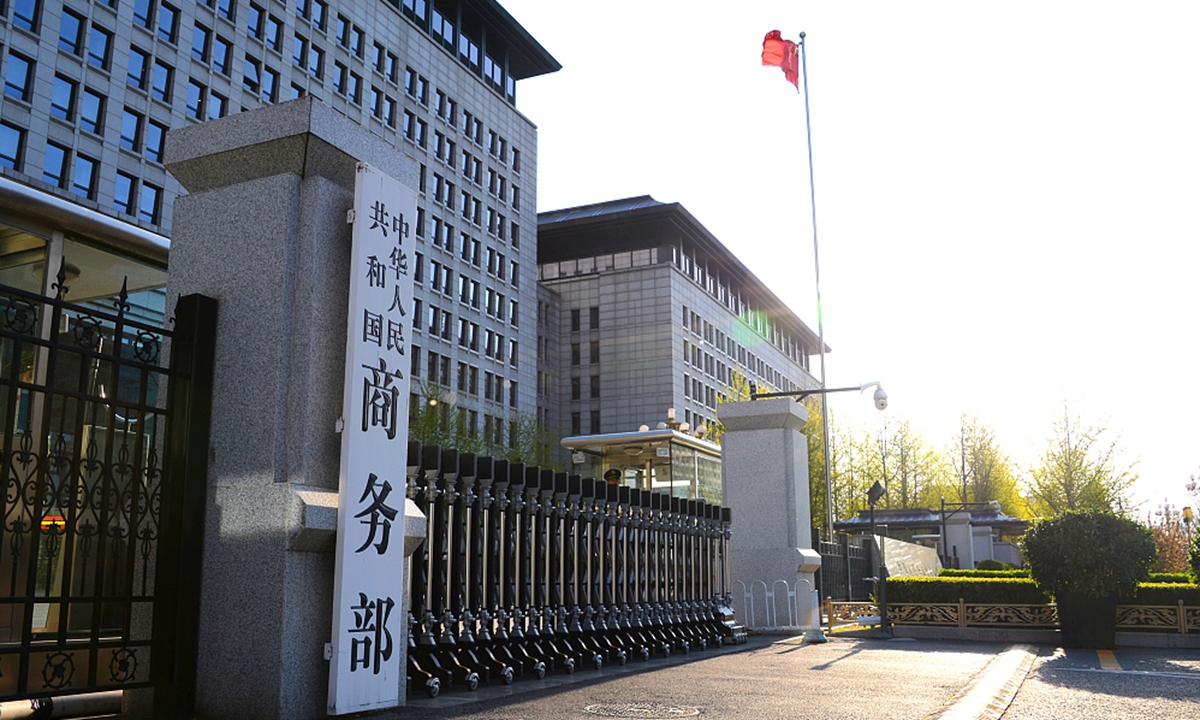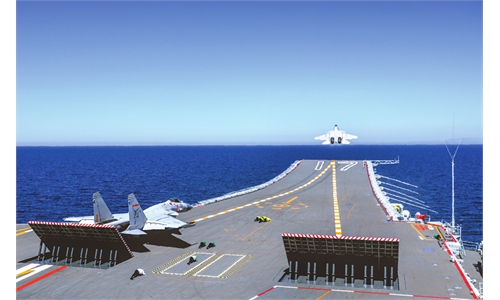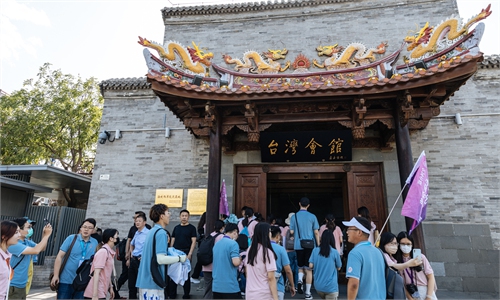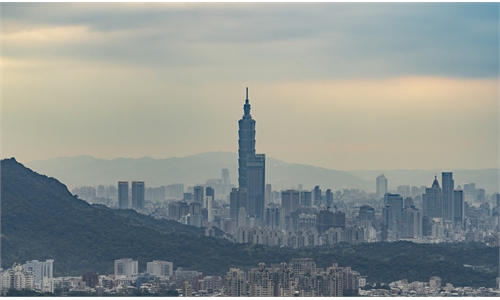
The Ministry of Commerce Photo: VCG
After an eight-month investigation, the Ministry of Commerce (MOFCOM) on Friday determined the trade restrictive measures imposed by the island of Taiwan on the Chinese mainland constitute trade barriers, and the spokesperson of the Taiwan Affairs Office of China's State Council also noted that they support the relevant authorities in working out appropriate measures based on the conclusion.
Analysts said that the results of the investigation are in line with the views of the majority of people. The fundamental reason for the significant cross-Straits trade deficit is that the Democratic Progressive Party (DPP) authorities have taken measures to prohibit the import of goods from the mainland.
They also called on the Taiwan authorities to deal with the investigation conclusion rationally and promptly lift trade barriers. Hyping the investigation or continuing to set trade restrictive measures does no good to cross-Straits trade relations.
In a brief statement on Friday, MOFCOM said that in response to applications from several mainland-based industry associations, pursuant to the relevant provisions of the Foreign Trade Law and the Rules for Foreign Trade Barrier Investigations, it issued Announcement No. 11 of 2023 on April 12, deciding to initiate a trade barrier investigation into the measures implemented by the Taiwan region that prohibited the imports of some mainland products.
Due to the complexity of the case, on October 9, the ministry announced it was extending the investigation period for three months to January 12, 2024.
According to the rules of the World Trade Organization, Taiwan is obligated to provide equal export treatment and competitive opportunities to the mainland and other WTO members. The cross-Straits Economic Cooperation Framework Agreement (ECFA) also clearly stipulates that the two sides should gradually reduce or eliminate tariff and non-tariff barriers on essentially all goods trade between the two sides.
However, Taiwan has long imposed trade restrictions on certain products originating from the mainland, and in recent years, the scope of mainland products that Taiwan forbids imports of has been expanding. As of November, Taiwan has banned the import of 2,509 mainland products, according to the ministry.
The mainland has long offered favorable conditions for Taiwan products, while the Taiwan authorities arbitrarily placed curbs and discriminatory measures against many products from the mainland, He Weiwen, senior fellow of the Center for China and Globalization, told the Global Times.
"This not only violates the WTO principle of non-discrimination, but also violates the spirit of equality and mutual benefit in cross-Straits trade," He said.
He also said that since ECFA took effect, it has delivered tangible benefits to industries on both sides of the Straits, especially the relevant industries and people in Taiwan.
The mainland continues to be Taiwan's largest import partner. According to data released by China's General Administration of Customs, from January to December 2022, cross-Straits trade reached $319.678 billion. Of this figure, the mainland imported $238.092 billion from Taiwan and exported $81.587 billion to Taiwan
After MOFCOM released the conclusion, Zhu Fenglian, spokesperson of the Taiwan Affairs Office of China's State Council, said on Friday that the investigation was clear, the evidence was sufficient, and the conclusions were objective and fair.
"We support the relevant authorities to work out appropriate measures based on relevant regulations and in consideration of the final conclusions of the investigation," said Zhu.
The Taiwan authorities should deal with the investigation conclusion rationally, promptly lift the trade barriers and open up channels for mainland goods to Taiwan, Zhang Wensheng, deputy dean of the Taiwan Research Institute at Xiamen University, told the Global Times.
If the DPP authorities insist on interpreting the mainland's actions politically and persist in these trade barrier measures, the mainland may have to take reciprocal countermeasures to prohibit some types of goods from the island, said Zhang.
Tang Yonghong, deputy director of the Taiwan Research Center at Xiamen University, also noted that in accordance with international rules, the island will be asked to scrap unfair and illegal trade barriers based on investigation results. If the island refuses to do so, the two may resort to the WTO for further settlement.
"It's also in line with the rules for the mainland to launch countermeasures as a response of being 'unfairly' treated by the island, but what these measures would be, and how they will impact the Taiwan industries will be determined by the damage the Taiwan restrictions have done to mainland enterprises," Tang told the Global Times on Friday.





